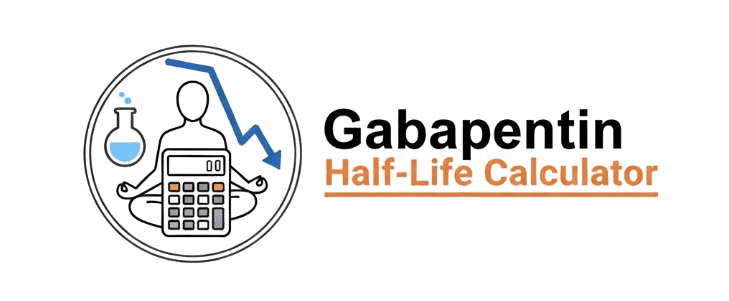How Long Does Gabapentin Stay in Your System? Drug Testing Detection Time

- Gabapentin is an anticonvulsant medication that’s used to treat seizures and nerve pain.
- Gabapentin isn’t controlled on the federal level, but some states have it classified as a controlled substance.
- Most drug tests don’t look for gabapentin specifically, but it may be detectable for 2 to 4 days with urine tests.
- Gabapentin isn’t regarded as having a high addiction potential, but it can be misused and may cause physical dependence and withdrawal.
- Gabapentin withdrawal can have dangerous symptoms like seizures.
Gabapentin is a medication used to treat seizures and nerve pain. It’s sold under the brand name Neurontin, but there are plenty of generic versions on the market. Gabapentin has mild side effects and few significant drug interactions, so it’s commonly used with other medications to treat a variety of conditions.
While gabapentin is not a federally controlled substance or a common drug of abuse, it still has a potential for misuse that caused some states to classify it as a controlled substance. Learn more about how long gabapentin stays in your body and its drug test detection window.
How Does Gabapentin Work?
Gabapentin is not a controlled substance listed by the DEA, but it does require a prescription from a physician to take it legally. Though gabapentin is officially listed as an anticonvulsant drug, it’s believed to simulate the actions of the neurotransmitter gamma-aminobutyric acid (GABA).
Neurotransmitters like GABA are released by nerve cells in the brain that allow the brain cells to communicate with each other. GABA is a major inhibitory neurotransmitter, so releasing it decreases the activity of other neurons in the brain.
Gabapentin does not directly affect the receptors that are specific to GABA, but it can reduce the activity of other neurons through other mechanisms.[1] This allows gabapentin to address conditions like seizures, nerve pain, and anxiety.
Generally, gabapentin use is not considered to have an addiction potential like other painkillers, such as opioids. However, it’s not as effective at relieving pain as these drugs, so gabapentin is often used as part of a treatment protocol instead of a standalone drug.
Gabapentin Half-Life
Gabapentin comes in immediate-release and extended-release formulations, usually as a pill. The half-life of gabapentin in most people is between 5 and 7 hours, which is how long it takes for the drug’s concentration in the body to be reduced by half.[2]
The liver metabolizes most drugs, but the kidneys primarily metabolize gabapentin. This unique metabolism leads to the drug’s short half-life. Generally, gabapentin stays in the body for about 48 hours, but factors can affect this process. Extended-release versions are designed to release the drug over time so it stays longer.
How Long Does Gabapentin Stay in the Body?
Drug screens typically do not test for gabapentin, but it can be detected if the test is designed to look for it specifically. In urine, gabapentin is detectable for 1 to 4 days after last use.[3] Though hair tests don’t usually detect gabapentin specifically, they have long detection windows of up to 90 days.[4] The detection windows for blood and saliva tests are unknown.
| Testing Method | Estimated Detection Window | Key Considerations |
|---|---|---|
| Urine Test | 1 to 4 Days | Most common method; elimination is highly dependent on kidney function. |
| Blood Test | 5 to 7 Hours | Very short window, reflecting the drug’s short half-life (5–7 hours). |
| Saliva Test (Oral Swab) | Detection Unknown | Unlikely to be detectable or tested; detection window is not established in literature. |
| Hair Follicle Test | Up to 90 Days | Detection is possible but “highly unusual” for this substance. |
Because gabapentin is metabolized differently, the dosage may have less of an effect on how long it stays in the body than other drugs. However, high doses of gabapentin could likely have longer elimination times.
Several other factors can affect the elimination of gabapentin from the body, including age, weight, organ function, and general health.[5] Differences in kidney function between individuals would likely affect how quickly gabapentin is eliminated since the kidneys metabolize the drug.
Gabapentin Risks and Warnings
Gabapentin has minimal side effects and drug interactions, but it’s not without risks. It’s important to avoid driving or other dangerous activities until you know how gabapentin will affect you. Drowsiness or dizziness can cause accidents or severe injuries.
Avoid taking gabapentin with other drugs that cause drowsiness or slowed breathing, such as opioids, sleep medications, or alcohol. Doing so can cause dangerous side effects or death. Several medications can interact with gabapentin, including:[6]
- Naproxen
- Zolpidem
- Lorazepam
- Cimetidine
- Opioid medications like hydrocodone, oxycodone, and morphine
This is not an exhaustive list of potential drug interactions with gabapentin. Discuss any medications you take with your doctor, including prescription and over-the-counter medications, before taking gabapentin.
Gabapentin Withdrawal
If you take gabapentin for long periods and stop suddenly, potentially dangerous withdrawal symptoms can occur. If you only used gabapentin for a short period at a low dose, withdrawal isn’t common. Most people who experience withdrawal symptoms from gabapentin have a physical dependence or have misused the drug. Their body needs it to function, so withdrawal happens if it’s suddenly absent.
Gabapentin withdrawal often lasts for 5 to 10 days.[7] The withdrawal symptoms depend on your age, how much of the drug you’re taking, how long you’ve been taking it, and any other drugs you take. Gabapentin withdrawal syndrome has similarities to alcohol or benzodiazepine withdrawal, which can be extremely dangerous, including symptoms like:[8]
- Restlessness
- Agitation
- Anxiety
- Stomach pain
- Confusion
- Dizziness
- Disorientation
- Excessive sweating
- Nausea
- Headaches
- Sleeplessness
Though less common, gabapentin withdrawal can have symptoms like heart palpitations, high blood pressure, muscle twitching, depressed mood, suicidal thoughts, restless limbs, light sensitivity, and seizures.[9]
It’s best to stop taking gabapentin using a taper, which weans you off the drug slowly to reduce withdrawal symptoms. It’s best to do this under the supervision of a doctor. It can take up to 18 weeks to completely taper off gabapentin while managing withdrawal symptoms.
Treating Gabapentin Withdrawal and Addiction
Though gabapentin was once considered a safe and non-addictive drug, physical dependence and misuse can occur. If this happens, it’s dangerous to stop taking gabapentin abruptly.
Some people can taper off gabapentin with guidance from their doctor, but severe gabapentin withdrawal may require intensive monitoring and management in a medical detox program. There are no approved medications to treat gabapentin withdrawal. However, a medical detox team can adjust the drug taper to ensure the withdrawal symptoms are reduced until the drug is eliminated.
If you’ve been misusing gabapentin or feel that you have an addiction to it, an addiction treatment program may be recommended after medical detox. This addresses the social, psychological, and emotional aspects of substance abuse and substance use disorder with behavioral therapies and traditional therapies like individual counseling and group therapy.
Be Cautious with Gabapentin
Though gabapentin is a legal prescription drug that’s not often detected on drug tests, it can be misused and may cause dependence. If you’re concerned about drug interactions, overdose, or a drug test while taking gabapentin, you must speak to your doctor about a taper schedule and medical detox.
Frequently Asked Questions About Gabapentin


